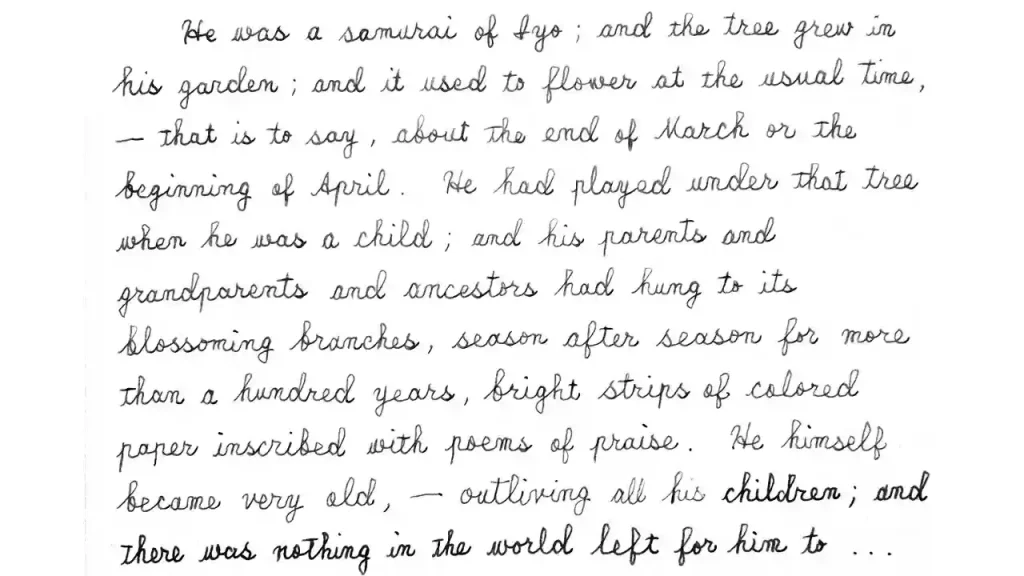He was a samurai of Iyo; and the tree grew in his garden; and it used to flower at the usual time,—that is to say, about the end of March or the beginning of April.
JIU-ROKU-ZAKURA
- subject: そのき
- predicate: かいかする
- modifier: ふつうの・じきに
日本語訳:
彼は伊予の侍でした。
その木は彼の庭で育ち、以前は普通の時期に開花しました。
つまり、三月末か四月のはじめ頃です。
- 侍 / Samurai (さむらい, warrior)
- 普通 / Futsuu (ふつう, ordinary)
He had played under that tree when he was a child; and his parents and grandparents and ancestors had hung to its blossoming branches, season after season for more than a hundred years, bright strips of colored paper inscribed with poems of praise.
- subject: かれの・いちぞく
- predicate: つるす
- modifier: そのきに・しを
幼少期、彼はその木の下で遊びました。
彼の一族はその木の開花した枝に、称賛する詩が書かれた鮮やかな色紙を吊るしました。百年以上、毎年。
- 幼少期 / Youshouki (ようしょうき, childhood)
- 一族 / Ichizoku (いちぞく, family/clan)
- 詩 / Shi (し, poem)
He himself became very old,—outliving all his children; and there was nothing in the world left for him to love except that tree.
- modifier: ながいきして
- subject: かれ
- predicate: ひとりぼっち
彼は高齢になって、自分の子供たちよりも長生きしました。
そしてこの世で彼が愛するものは、その桜の木しか残っていませんでした。
- 高齢 / Kourei (こうれい, old age)
- 長生き / Nagaiki (ながいき, longevity)
And lo! in the summer of a certain year, the tree withered and died!
- modifier: なつに
- subject: そのき
- predicate: かれる
そして、なんと!ある年の夏に、その木が枯れて、死んでしまいました。
- 枯れる / Kareru (かれる, to wither/dry up)
Reference : Kwaidan by Lafcadio Hearn (project gutenberg)
English Story With Easy Japanese Translation
